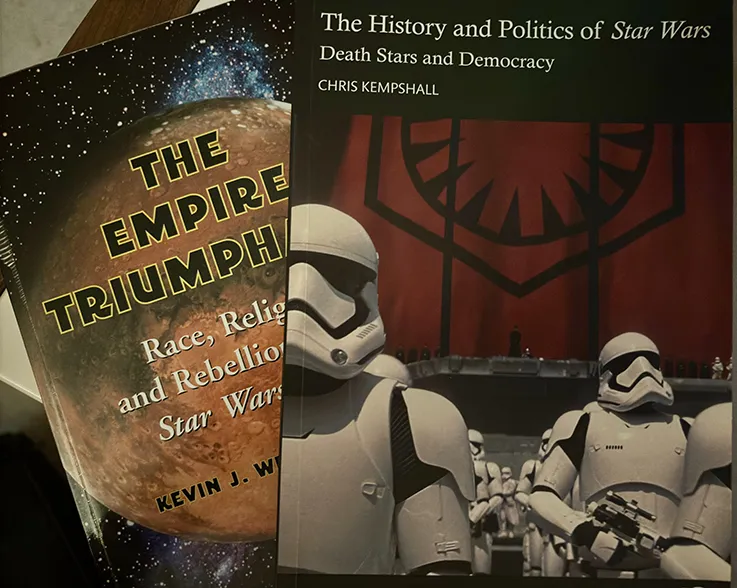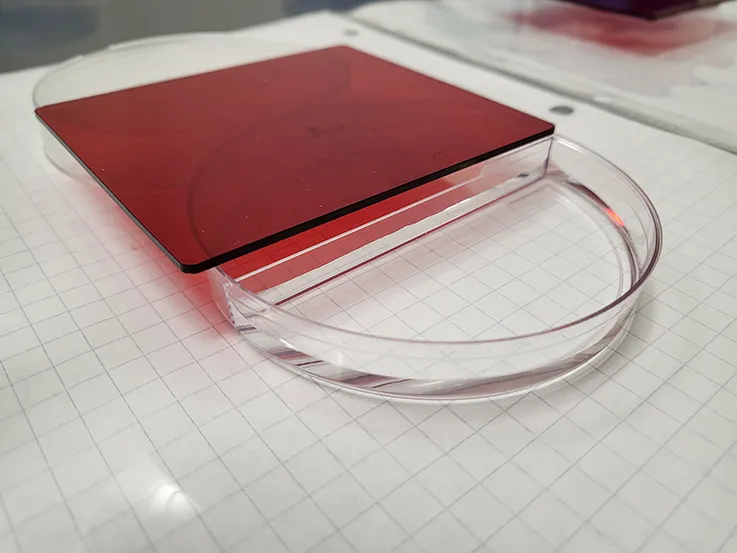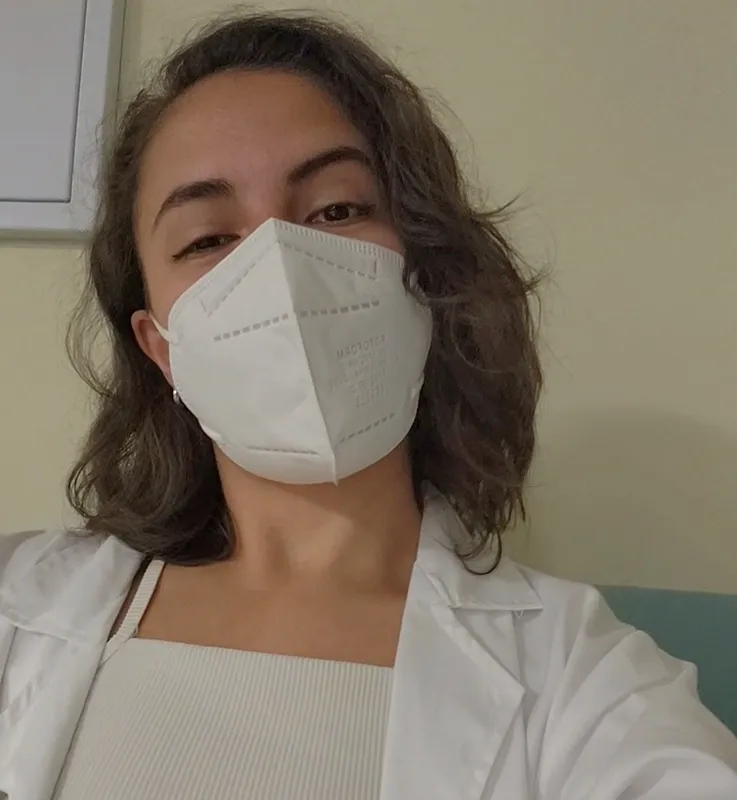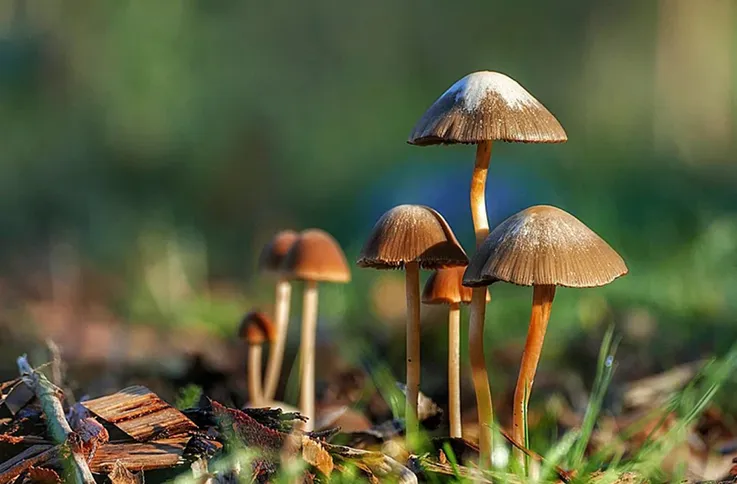Undergraduates Solve and Prove through Research
No matter your major, the Undergraduate Summer Opportunity for Applying Research (U-SOAR) program gives undergraduate students the chance to work closely with a faculty mentor to collaborate on inquiry-based research. Participants collaborate with peers and others, use top-quality equipment, find the answers to problems and questions, and forge their way to becoming leaders in their chosen fields. Years from now, participants will draw from the U-SOAR experience and apply it in their careers and lives.
See more on the 2024 U-SOAR class—and remember them. They may be behind the next big discovery. You could be, too. Learn more about the U-SOAR program and how to apply.
Summer Research: Challenging, Exciting, Independent
“The research experience has been challenging yet exciting. It’s precisely what I wanted. I thoroughly enjoy how independent I can be as a researcher and how my advisor challenges me to think about various concepts that could impact our reaction outcomes, such as possible alpha-proton elimination or substitution. I’m learning how to use Gas Chromatography and Mass Spectrometry systems to analyze the contents of the reaction samples I collect. It’s a very powerful analytical instrument that can also be used in a clinical setting. While I am a Medical Technology major, Chemistry has become my recent scientific obsession.”
 Star Wars Rebels and Political Implications
Star Wars Rebels and Political Implications
Thomas Oraskovich
Sociology & Political Science, Early Grad Admit to Public Affairs M.A.
What are you researching?
This project examines terrorism within Star Wars Rebels through a structural lens.
Star Wars is an inherently political franchise. Built upon foundations from George Lucas’ political activism regarding the Vietnam War, “Star Wars is and will always be political” – George Lucas. Today, how political is Star Wars? Specifically, how does the franchise showcase terrorism versus rebellion?
Looking at Star Wars Rebels, a television show marketed toward a kid/tween audience that follows an alleged rebel, clandestine cell, this project will examine each episode and mark where various grounding and future emergent themes are present. In doing this, the popular Star Wars media can be analyzed via a content analysis. This will help to define how Star Wars Rebels use or do not use terrorism.
Why is it important?
Pop culture is highly relevant to the world around us all. The times in history when entertainment and media choose to base a show or cover an event are both contextually important to understand the media itself but also equally reflective of the society around it. How Star Wars Rebels present their terrorism and/or rebellion is contextual to the world and the world around us. As millions of people tuned into the show, then the possible reach that Star Wars Rebels has on its audience and how it influences them regarding terrorism vs. rebellion is widespread both directly and even subliminally.
“Star Wars is and will always be political.” – George Lucas

 Continuing Research on Using Planarian Flatworms as a Model for Opioid Preference
Continuing Research on Using Planarian Flatworms as a Model for Opioid Preference
Cynthia Roldan
English Literature and Culture, and Biology Pre-med
What are you researching?
We are using planarian flatworms as a model to examine the aspects of addiction to prescription opioid medication. The goal of this research is to test whether planarians show a reward response to oxycodone, and at what dose range that happens. This is done by using Conditioned Place Preference. Conditioned Place Preference is when an organism prefers an environment when it is paired with a drug over an environment with no form of encouragement used.
This is accomplished in three phases. The first phase consists of individually removing planarians from their home and giving them the option to choose between their typically favorable and unfavorable environment in a petri dish that has one half covered. We take note of how long they stay in the light since planarians usually avoid the light whenever possible. During the second phase, the planarian is moved into a petri dish that limits the planarian to their less preferable side and is subjected to a dosage of opioids that increases weekly. For phase three, we place them back into their original petri dish from the first phase, and take note on how much that exposure impacts their decision to stay in the less desirable environment.
Why is it important?
Planarians share the same opioid signaling receptors that humans use. These are brain cells that are crucial for regulating addiction in various drugs. Very little research has been done in any species to probe mechanisms involved in prescription opioid addiction, and no studies have used planarians to do so. This line of research can provide an opportunity to learn more about the evolutionary significance of opioid signaling and the behaviors and biological processes that are impacted by abuse.

 Evaluating the effects of psilocybin on mental health disorder symptoms in recreational settings
Evaluating the effects of psilocybin on mental health disorder symptoms in recreational settings
Symia Taimuty-Loomis
Psychology
What are you researching?
The purpose of this study is to evaluate the self-reported use of psilocybin for self-treatment of depression, anxiety, and traumatic symptoms outside of clinical confines and in recreational settings. By reading thoroughly through self-reports of psilocybin drug experiences, several variables can be determined among recreational users such as frequency of medical intent for use, frequency of psychological disorder symptoms, efficacy of self-treatment, and longevity of benefits. When results are compared to clinical literature, insight can be gained as to whether the benefits of psilocybin for mental health disorders seen in clinical trials translate into real-world settings, even in the absence of a therapist.
Why is it important?
Currently, there is a high frequency of mental health disorders and current treatment options are not successful for many patients. Psilocybin has reemerged as a possible alternative treatment for psychological disorders. Recent clinical studies (employing trained therapists, in controlled environments, with screened participants) have shown exceptional promise. The frequency and efficacy of psilocybin use for addressing psychological disorders outside clinical confines remains unknown though public and professional awareness of its use for these purposes has been growing. Understanding whether the benefits of psilocybin for mental health disorders remain within self-treatment in recreational settings may help to further support this breakthrough therapeutic treatment before it is accessible to the public.
